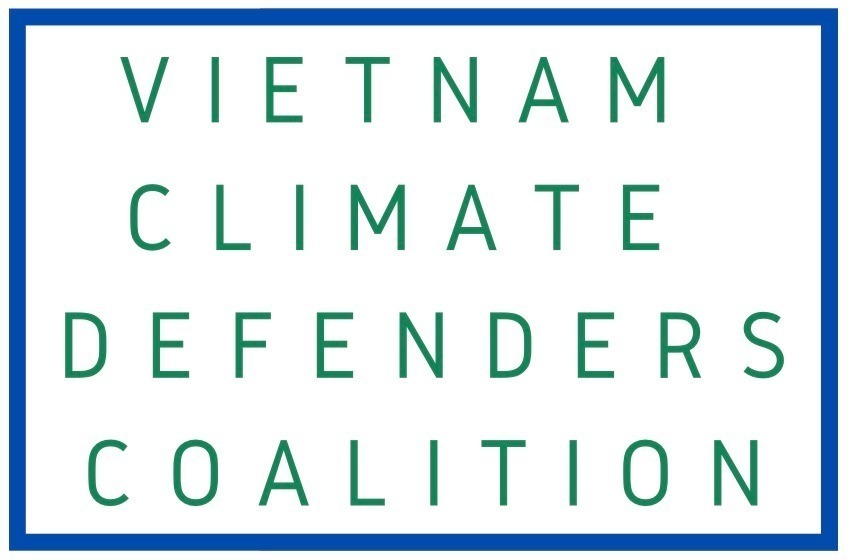MEDIA CONTACT: v4climateleaders@gmail.com
FOR IMMEDIATE RELEASE: March 7, 2024
While Asian Development Bank (ADB) President, Mr. Masatsugu Asakawa, visits Vietnam next week from March 11-15, we urge him to sound the alarm on the country’s lack of genuine commitment to its Just Energy Transition Partnership (JETP) and other climate finance projects while its climate leaders are in jail. The visit will celebrate the 30th anniversary of the re-establishment of credit relations between the ADB and Vietnam, according to the State Bank of Vietnam.
The ADB is one of the banks listed as a funder of projects proposed under the $15.5 billion JETP announced in December 2022 by the U.K., U.S., and other G7 countries with Vietnam. As the ADB President heads to Vietnam for high-level meetings with country officials, the Vietnam Climate Defenders Coalition (VCDC) urges him to take the opportunity to highlight the importance of ensuring environmental, climate and community advocates can participate freely in Vietnam’s climate-resilient future without fear of retaliation. VCDC is a coalition of over three dozen international and regional human rights and climate justice organizations.
“There is no such thing as a just energy transition while climate experts are being repressed and persecuted,” said Guneet Kaur, Environmental Defenders Campaign Coordinator at International Rivers, who coordinates the VCDC. “The wrongful incarcerations of Mr. Dang Dinh Bach, Ms. Hoang Thi Minh Hong, Ms. Ngo Thi To Nhien, and others who have worked for years on Vietnam’s transition away from coal has derailed the JETP before it could even begin.”
The Asian Development Bank (ADB) should follow the MDB Just Transition High-Level Principles for any JETP support, which underscore the importance of transparency and inclusive planning by all relevant stakeholders, including civil society. There must be safe, meaningful spaces for community, workers, and civil-society groups to raise questions, concerns, and grievances.
ADB’s Safeguard Policy also requires access to information and meaningful consultation with all stakeholders in decision-making at every stage of a project’s design and implementation. This must all be undertaken in an atmosphere free of intimidation or coercion. The persecution of climate activists, environmental and human rights defenders, and energy policy experts effectively excludes them from the consultation process entirely.
ADB’s Statement on the Importance of Civil Society Participation acknowledges that participation “fundamentally supports good governance, citizenship, and accountability of the state. It promotes social inclusion of disadvantaged groups, equitable economic growth,” innovation, and responsiveness and is directly linked to more positive development effectiveness.
Civil society leaders played a pivotal role in Vietnam’s ambitious climate commitments to achieving net zero by 2050, which paved the way for the JETP. Their arbitrary and unjust arrests indicate a pattern and policy of reprisals, restricted information about the energy transition process, and attempts to intimidate civil society.
Most of the imprisoned climate experts were arrested on trumped-up “tax evasion” charges based on Vietnam’s vague and arbitrary laws. Another is serving time for appropriation of documents, suggesting efforts to criminalize access to information by the Vietnamese government. The arrests and the forced dissolution of environmental organizations in Vietnam have created a disabling environment for civil society leaders who should play a critical role in the monitoring and implementation of the JETP.
The ADB has 12 proposed projects under climate finance. The VCDC urges Mr. Asakawa to call for the release of imprisoned climate, environmental, and energy transition advocates. In addition, any form of financial support from ADB for public or private sector energy transition projects should be contingent upon explicit protections against retaliation and reprisals for environmental and human rights defenders, together with effective measures to safeguard access to information and ensure that civil society can participate freely and safely in decision-making on energy transition projects.
“ADB has consistently labeled itself as the ‘climate bank’ of the region and prominently profiles its energy transition initiatives. We urge the ADB not to move forward with any energy transition projects in Vietnam while the climate leaders are in jail and others working on these issues are silenced,” said Tanya Lee Roberts-Davis, the Just Transitions Advocacy Coordinator for the NGO Forum on ADB. “The ADB has clear provisions guaranteeing access to information, transparency and public participation enshrined in policy, none of which is possible in the current context in Vietnam.”
# # #

